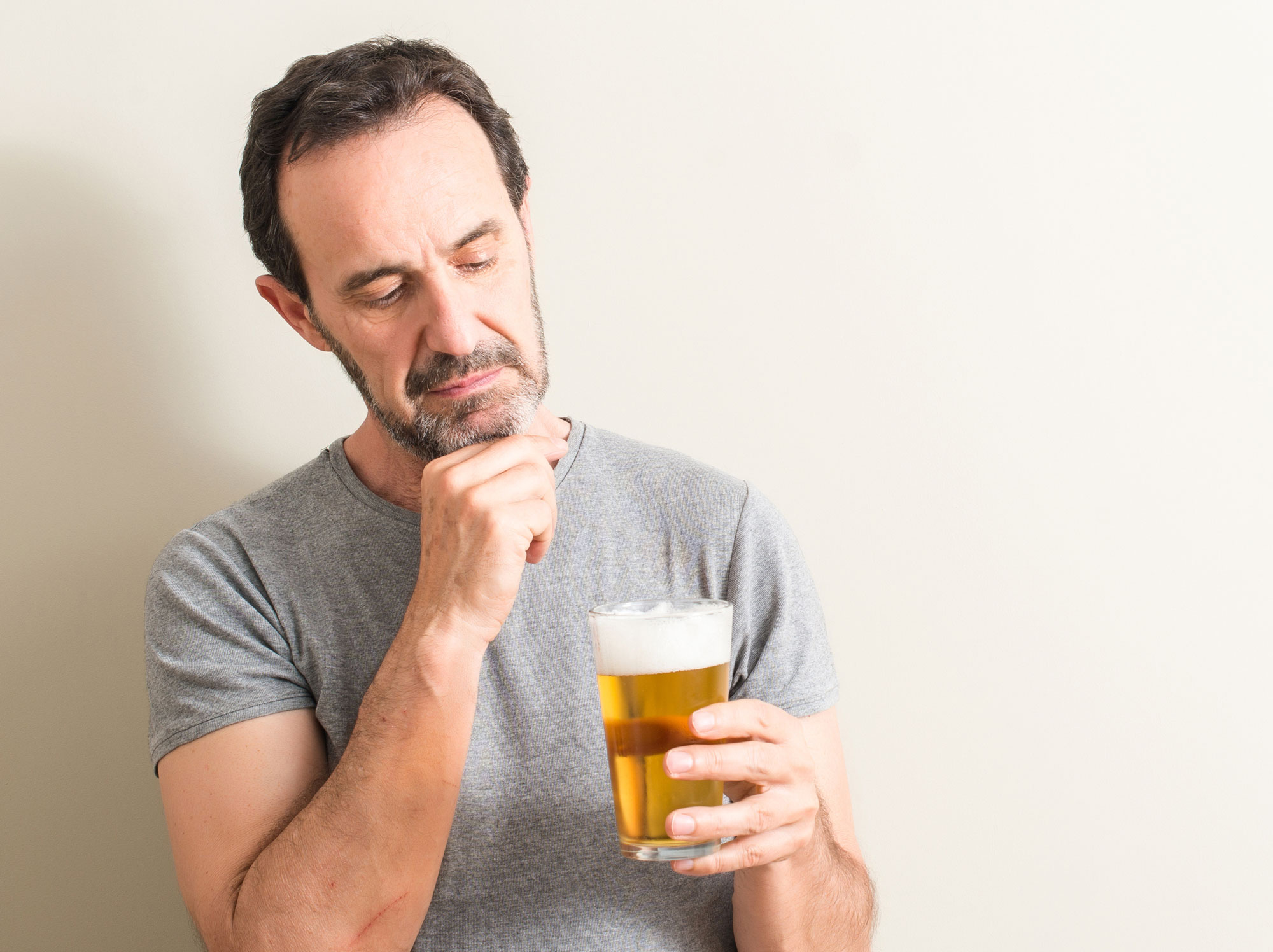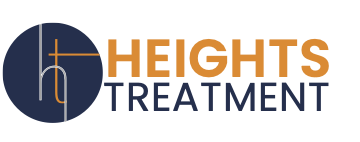Evidence-Based Practices for Lifelong Recovery
What Is Substance Use Disorder?
Substance Use Disorder (SUD) is a disorder of the brain that leads to the inability to control the use of alcohol or drugs–both legal and illegal. Those suffering with SUD continue to use addictive substances despite harmful effects or associated risks.
Addiction can affect anyone, at any age, at any stage of life, from any socioeconomic background. No matter how in control we think we are, we are all at risk of developing a substance use disorder.
Living with Substance use Disorder can feel isolating and overwhelming. The things we used to enjoy and responsibilities can be sidelined to achieve a high.
But now, you’ve decided to make a change. You want recovery so that you can lead a more fulfilling life outside of the throes of addiction.
You don’t have to do it alone. Substance Use Disorder treatment is available at The Heights Treatment.
What Causes Substance Use Disorder?
There is no singular cause of Substance Use Disorder. Many factors can contribute to addiction, including family history, the makeup of the drug itself, peer pressure, emotional instability, or co-occurring mental illness like anxiety, depression, Bipolar disorders, schizophrenia, or other conditions.
What is SUD Treatment?
Substance Use Disorder treatment helps the individual get clean and then develop the coping skills necessary for long-term relapse prevention.
Types of treatment for Substance Use Disorder include a combination of individual therapy, peer support, medication-assisted treatment, and adjunct treatments like Equine Therapy, Art Therapy, and Trauma Informed Yoga.
Substance Use Disorder Treatment at The Heights
At The Heights Treatment, our recovery support services are highly individualized. We cater our programming to your specific needs so that your treatment plan aligns with your recovery goals, your lifestyle, and your personal history.
Everyone’s experience with Substance Use Disorder is different. Your recovery journey should be, too.
We treat the following SUDs at our recovery facility:
Alcohol Addiction
Alcohol is considered a drug, and falls within the parameters of Substance Use Disorder. Whether you’re a heavy daily drinker or you find yourself planning your life around periods where you’ll be able to drink, struggling with an alcohol addiction can be all-consuming.
It is important that if you are seeking recovery that you do not attempt to detox from alcohol without medical supervision. Abrupt quitting alcohol can lead to fatal consequences.
Drug Addiction
Both legal and illegal drugs can lead to addiction. We can help you recover from addiction to anything from prescription medications to over-the-counter drugs to illicit drugs and even household substances like paint and glue.
Virtually any substance has the risk of addiction. If you or a loved one are abusing drugs, seek professional help.
If you are experiencing a life threatening emergency, call 911.
Dual Diagnosis
A dual diagnosis is given when Substance Use Disorder and a co-occurring mental health disorder present simultaneously. For example, if someone is struggling with Major Depressive Disorder and begins taking opiates to manage the symptoms, an addiction may develop. When that addiction develops, a dual diagnosis is made.

Our SUD Treatment Options
Our substance use disorder treatment programs occur during the daytime hours so that our patients can commit to recovering but maintain the autonomy and flexibility needed to attend to their career, school, or family obligations after hours.
Our treatment options for substance use disorders include:
Individualized Intensive Program (IIP)
IIP is ideal for patients transitioning from a higher level of treatment or an inpatient program. This program offers evidence-based modalities and an integrative approach, but patients still have the flexibility to balance their recovery with responsibilities at work, home, or school.

Partial Hospitalization Program (PHP)
A PHP is an intensive level of outpatient care that’s ideal for patients transitioning from a residential treatment program or IIP. Patients still have the flexibility to tend to work, home, or school but benefit from a structured environment for treatment and care in our welcoming rehab center in Houston.

Intensive Outpatient Program (IOP)
Our IOP is a good fit for patients who have completed IIP or inpatient treatment but may need more rigorous care than an outpatient program. This program can help patients who have taken the first step toward recovery on their own and need more long-term support, treatment, and accountability.

Outpatient Program (OP)
Mental health treatment programs provide evidence-based behavioral health therapy and psychiatry. A positive community of peer support, family therapy sessions, and a compassionate staff with an individualized, strategic plan. Patients learn skills like positive awareness, coping skills, interpersonal effectiveness, and mindfulness in regular therapy sessions.

The Heights Treatment Modalities for SUD
Our outpatient treatment programs focus on modalities that empower the whole person. We only use evidence-based therapies with scientific data and studies backing them.
Our addiction treatment center uses a combination of individual and group therapy to create a holistic approach to substance abuse, mental health disorder treatment, and co-occurring disorders.
Our modalities include:

FAQs About Substance Use Disorders & Sud Treatment
Answers to some of your most-asked questions about substance use disorder and addiction treatment services:
What are the Symptoms of Substance Use Disorder?
Substance Use Disorder is characterized by a compulsion to keep taking a substance regardless of consequence. Some of the signs and symptoms of SUD include mood changes, memory problems, problems concentrating, confusion, missed work, ignoring responsibilities in favor of taking substances, engaging in risky behaviors to obtain substances, and forgoing financial responsibilities and spending money on substances instead.
Not everyone with Substance Use Disorder will present with all of these signs and symptoms. It is important that if you or a loved one believe you are struggling with substance abuse that treatment from a healthcare professional is sought.
How Do I Know If I Need SUD Treatment?
It can be both dangerous to your health and detrimental to your long term recovery to attempt to overcome Substance Use Disorder on your own. Detoxing from addictive substances without the supervision of clinical treatment providers can result in unbearable withdrawal symptoms and lead to relapse, therefore pulling the individual back into the cycle of drug use.
Additionally, some substances, such as alcohol, can be fatal if not tapered. This should be done under the supervision of trained and certified professionals.
What is the Most Common Substance People Are Addicted To?
Alcohol tops the list of the most commonly abused substances in the United States
Are Substance Use Disorder and Opioid Use Disorder the Same Thing?
Methadone, mental health services
What is the Difference Between a SUD and addiction?
Substance Use Disorder is the physical and/or psychological dependence on addictive substances. While an addiction of any kind can lead to compulsions and cravings, addictions that do not include substance use are not considered a Substance Use Disorder.
For example, someone who is addicted to gambling is suffering from a process addiction rather than a Substance Use Disorder. Pornography and sex, eating disorders, internet and technology use, and work are also considered process disorders.
All types of addiction affect the individual’s physical and mental health and can result in interpersonal, financial, and legal ramifications.
Why is SUD not Curable?
SUD is a chronic, yet treatable disease.. Treatment for SUD is not a short-term solution to addiction: recovery is lifelong. Those who experience a Substance Use Disorder are at a risk for future relapse, no matter how long it has been since they’ve undergone treatment.
It is important to long-term sobriety that you commit to new behaviors, thoughts, and lifestyle choices that keep you on the right path.
What is the Most Effective Treatment for SUD?
The most effective treatment for Substance Use Disorder is the one that works for the individual. Recovery looks different for everyone. Some people may respond better to talk therapies like CBT and DBT while others find that they align more with Art Therapy, Trauma Informed Yoga, or Equine Therapy.
The type of treatment that works for you will depend on your personality, your communication style, and your own experience with addiction.
How Can I Get Help From a Drug Abuse Treatment Facility?
The first step in getting recovery help is speaking with an admissions specialist at a treatment center. The admissions specialist will ask you a series of questions to determine whether or not you are a candidate for their services, schedule any detoxification if needed, and establish you as a patient or client in their facility.
The treatment team will then create a highly individualized care plan for you and determine which level of care is best for you. Depending on your specific circumstances, you may be better suited to outpatient treatment over inpatient treatment.
After any needed detox services, you will enter into your programs and participate in holistic therapies to help you prevent relapse for long term recovery.
Will My Health Insurance Cover Substance Abuse Treatment?
Most major health insurance plans, including Medicare and Medicaid, cover admission into addiction treatment. Our admissions team will confirm your benefits with your insurance provider.
Do You Go to Detox Before SUD Treatment?
If your care team determines that detox is necessary, you will need to complete this process prior to entering into treatment. Detoxing before going to rehab allows you to show up fully for your therapies without battling physical cravings.
It is important to your continuum of care that you enter rehab right after detox is complete to prevent relapse.
The Heights Treatment: SUD Treatment Programs for Holistic Recovery
If you or a loved one have been diagnosed with substance use disorder and need to find treatment, we are here to help.
At The Heights Treatment, we’re committed to helping you overcome drug addiction, alcohol addiction, and co-occurring mental health conditions so that you can lead a more fulfilling, authentic life.
You CAN live a life free of substance abuse. Hope and healing are within reach at The Heights Treatment. Call and speak with our admissions department today to learn more about our life changing addiction treatment services for you or a family member.


